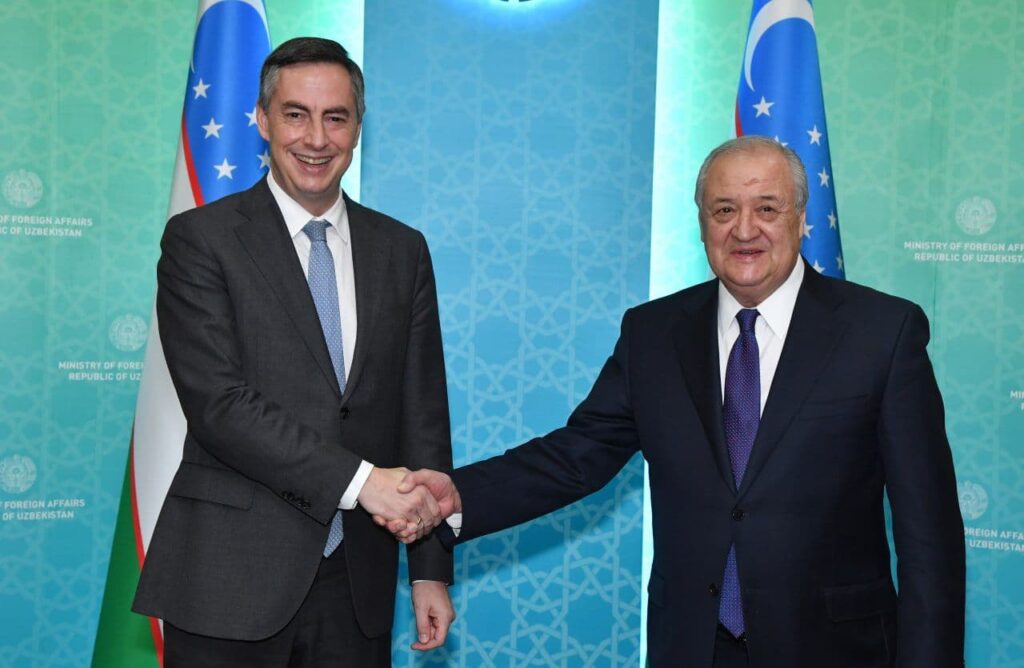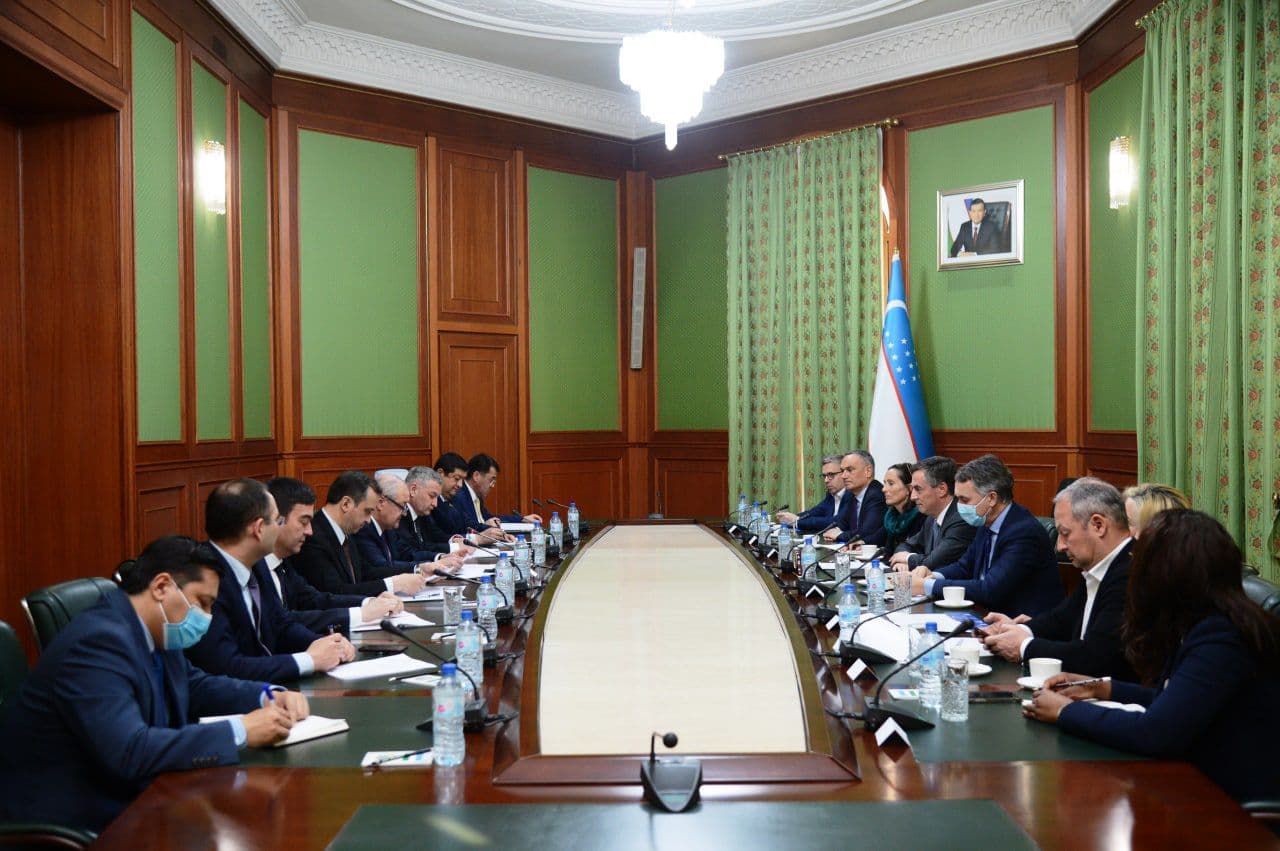Promoted by The Embassy of Uzbekistan in Brussels
On the 23th of February a delegation from the European Parliament, headed by David McAllister, chairman of the Foreign Affairs Committee (FAC), paid an official visit to Tashkent. During the intense three days of the mission, members of the European Parliament had meetings and talks at the Oliy Majlis (parliament of Uzbekistan), Ministry of Foreign Affairs of Uzbekistan, as well as participated in a roundtable on "Democracy and Human Rights as Factors of Sustainable Development," organised by the University of World Economy and Diplomacy.
It was the first in-person meeting between Uzbek and European counterparts in Tashkent, what is more, Uzbekistan became the first Central Asian country to be visited by European parliamentarians since the pandemic.
The visit took place almost immediately after the 15th meeting of the EU-Uzbekistan Parliamentary Cooperation Committee in Brussels on 31 January, and was a key one in the history of EU-Uzbekistan inter-parliamentary relations. It showed not just in words but also in fact that there is a real intensification of inter-parliamentary dialogue between the European Parliament and Oliy Majlis. Thanks to the effectively conducted parliamentary diplomacy, the EU has been gaining additional added-value in promoting Uzbekistan's alignment with democratic norms and values.
This added-value layers on the other intense bi and multilateral dialogues, projects and cooperation that have been taking place between Uzbekistan and the EU, transforming their cooperation into the complex and intertwined partnership. Connectivity Summit, the conference of the European Union and Central Asian Special Envoys for Afghanistan, the EU Special Representative for Central Asia, and the upcoming International Investment Forum are a few examples of this synergy.
This state of affairs was mutually confirmed. During the meeting held in the Uzbek MFA, Abdulaziz Kamilov, Minister of Foreign Affairs of the Republic of Uzbekistan expressed interest “in further strengthening cooperation with the EU and filling the bilateral and regional agenda with practical content”, while David McAllister in one of his interviews highlighted:
“I believe that we can take the relations between the European Union and Uzbekistan to the next level. We are working on the Enhanced Partnership and Cooperation Agreement (EPCA) ... to conclude it in 2022. At the core of this agreement is an economic cooperation that will bring advantages for both sides, but also the improvement of the situation of human rights, sustainability and environment that would be beneficial for citizens”.
With this regard, the European Parliament plays a crucial role, as it is up to this institution to approve the negotiated EPCA as well as to give the green light for the further development of partnership and cooperation with Uzbekistan in areas of mutual interest.
All of the above shows that Uzbekistan is not only becoming a transport or economic hub but also becomes a political hub, where all regional and international actors are warmly welcome to come together to discuss, plan and implement their ambitious agendas.
This means a lot. First of all, it confirms the growing significance of Uzbekistan in the region, which now has been acknowledged not only by the USA, China and Russia, but also by the EU. Uzbekistan's position has strengthened considerably after some geopolitical changes that took place in the region in January 2022 and that automatically placed Uzbekistan to the position of the new regional leader.
Secondly, the recent transparent presidential elections (October 2021), progressing economic liberalisation together with the effective governance reforms showed that Uzbekistan is being actively transformed and modernised. The country needs tangible support in this dynamic process, while the EU has a chance to make sure that this transformation would be in line with democratic norms and international human rights standards, including labour standards.
Thirdly, the country has proved its pro-active position and constructive stance in the region, whether it is a border-dispute resolution or efforts to address the political and humanitarian crisis in Afghanistan since NATO left the country in April 2021.
It is obvious that among all the countries of the region, Uzbekistan qualitatively stands out and becomes the country on which the EU increasingly relies in its activities in the region. Intensification of the Inter-parliamentary dialogue, the work on the signing of the Enhanced Partnership and Cooperation Agreement (EPCA), the upcoming accession to the World Trade Organisation (WTO) and deepening the partnership under the European Union's Generalised System of Preferences GSP+ - shows that the country is on its way to become the EU's strategic partner in the region.
Vita Kobiela, BE Communications Co-Lead


